
I design and build automated test rigs which automatically test PCBs and check they’re functioning within expected parameters.
The wide variety of possible placements and mentoring support. So far, I’ve really enjoyed my current placement as I’ve had a chance to exercise my creative problem-solving skills and got to see a wide part of the business that takes place in the site that I’m at. So far, we haven’t started the mentorship programme but the people at my site have been wonderfully supportive and I’ve felt like I fitted right in almost from the start.
My soldering skills have increased in leaps and bounds.
I’ve created 2 automated Test rigs so far, they’re going to go on to be used in the wider business, the receiver ATE to test PCBs before they reach us, reducing error rate and hence expenditure on faulty units. And the Speaker Unit test rig will be used by one of the engineers to help with the design of the new Speech Unit that’s currently under development.
My managers have been very supportive, happily listening whenever I’ve gone to them. They’ve also put in place various training sessions in order to improve my skills and competencies. The wider business has given me monthly training sessions and enrolled all of us onto their management gate to great programs in order to prepare us for management roles.
Do it, it’s a wonderful opportunity. Though get comfortable with driving long distances as there’s a large amount of sites to visit.
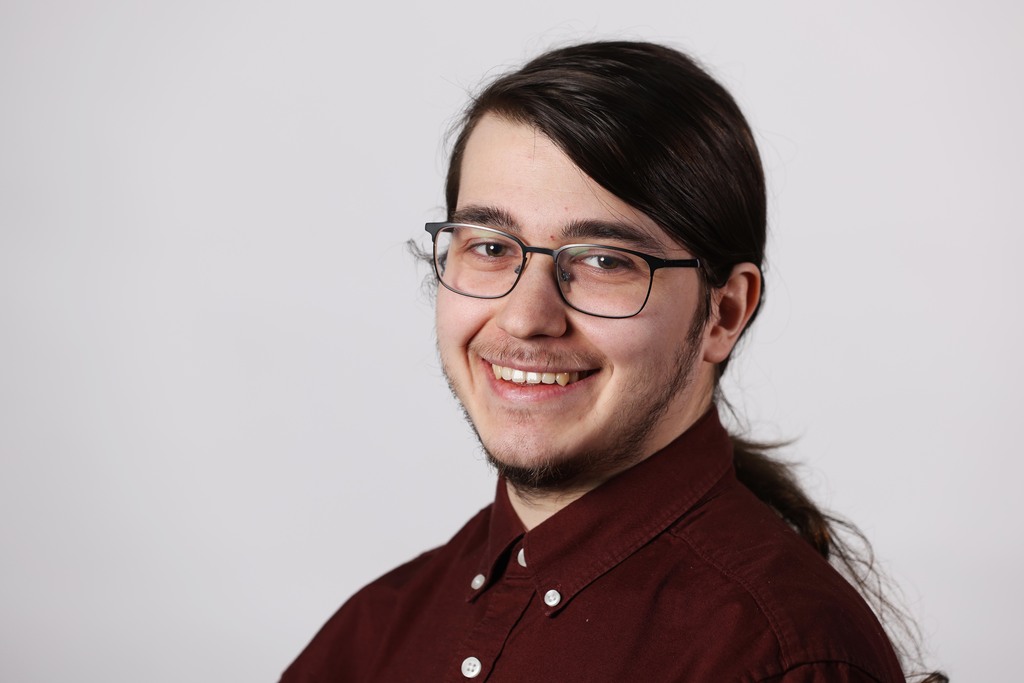
My current role is a software/firmware engineer. My key responsibilities have been to document my working following specific rail standards and ensuring that my work is checked by people more experienced than me, using their knowledge and experience to learn. To communicate and showcase my work to my manager through comm cell, jira and overall meetings. As well as main responsibilities of admin like email, updating calendar and specific forms the company uses.
I was attracted to this program because of the extensive reach that Unipart has worldwide but also the UK. Working for a company of this scale has given me plenty of insight into how a business should be run efficiently and effectively. The other engineers have impressed me with their knowledge and challenging questions they ask when I have to justify my way of thinking/work. Each specialising in certain areas and having knowledge that no one else has and being able to utilise this knowledge as a team in meetings to give different views and aspects to create a project pipeline. Being able to be in meetings for upcoming projects like DWS has given me lots of inspiring experience in showcasing how a perfect meeting should go, keeping on topic and clearly outlining goals/expectations. The people that I talked through on the interviews as well made the experience very fun and enjoyable while applying which helped. This showcased the capability and growth that I could gain while at Unipart and through each person I've seen and heard their growth comparing from the level I am now to see where I could be after a few years or so.
I have developed skills like Networking and configuring these connections into subnets for my project of Signal Strength Testing. Alongside the experience I have gotten in Python following PEP 8 standards and experienced a code review to give me ways of analysing my code for decisions that I have while programming justifying each line of code on a very granular level. More experience in C# from Informix but understanding Informix alongside that and how a database interacts with its data, being able to read bytes and learn a database from hand almost using tools like Hex Editor. Tools I’ve learnt are visual studio code, Git, Visual Studio 2019. I believe my thinking out of the box has improved from this placement, giving suggestions on how the business overall can improve but also the software department such as suggesting BitBucket as an extension for the Git that we are now using in our workplace.
A project that I have worked on that's made a real impact is Signal Strength testing where I have completed a project that can be used for an outbound email order that we are waiting on to support an existing product to help with the sales of that project. This experience also helped a colleague with an issue as my documentation and knowledge of this product was able to help identify the problem that they were experiencing giving this detail on a more precise level and quicker to resolve this issue as well.
I have received plenty of support & help with my projects. They have all been comforting and understanding, being able to help me with their repertoire of knowledge. Everyone has been very kind and I am so thankful for their support. We have an Early Careers Manager who has been wonderful at taking care of us all. They provide a schedule and keep me relaxed whenever we have an off-site visit and training session. Being able to have someone I can email who is out of my immediate team, should I have a query, has made things easier, just having that contact and, in the beginning especially, that was very important for me.
Advice I would give is that communication is always key which I learnt from University. However, being able to apply it in a work site is so useful for settling in for those first few weeks. Talking to people whenever the opportunity, even as daunting as it may be, meeting so many new people at once. From meeting people at Unipart everyone has always been warm and welcoming, keeping me very relaxed. Another piece of advice is to follow the resilience training and always remember that resilience, whenever you are struggling or finding it hard. It's been extremely helpful for me while working, whether I've been finding work too much or out of work experiences too much to handle, it's helped me keep a level head and my ability to focus and apply myself. Always to reach out as well though regardless of how resilient you are, keeping people in the loop always helps.
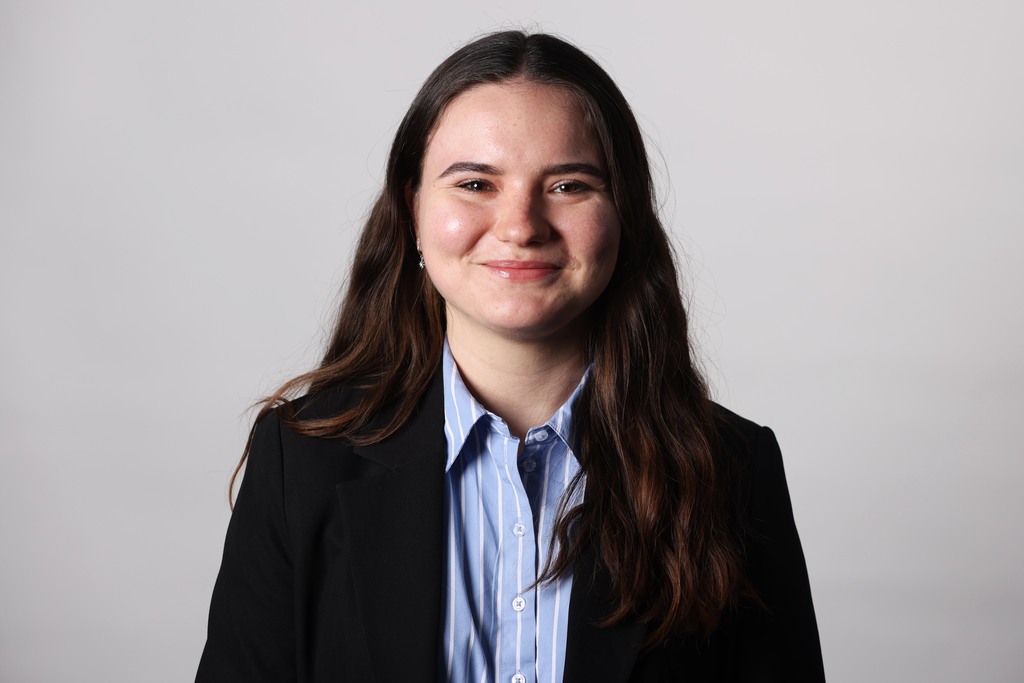
In my current role as a Graduate Software/Firmware Engineer at Unipart Rail in Crewe, I primarily focus on the development and testing of Train Protection Warning Systems (TPWS). My key responsibilities include developing software in C# for various TPWS products, as well as creating and implementing testing solutions to ensure product reliability and functionality.
What initially attracted me to Unipart’s graduate program was the opportunity to work with a diverse range of technologies, within Unipart and its associated companies. I was particularly drawn to the structure of the program, with its three rotational placements, as I believed this would provide me with a well-rounded understanding of the business and allow me to explore different facets of engineering. In terms of meeting my expectations, the program has delivered on its promise of exposure to varied technologies. Working on TPWS systems, for example, has given me practical experience in C# development within a critical safety-related field.
Since starting, my C# skills have significantly improved, particularly in developing Windows applications and writing code for automated testing. I've also become proficient in DevOps, and I've gained crucial experience in producing detailed documentation for safety-critical systems.
A key project involved reviving an older Python test software for AWS/APC PCBs, used for our automated testing. It wasn't working, so I investigated and fixed the code, reintegrating it with the testing equipment. This brought back a useful testing capability, preventing the need to recreate the software. It will be valuable for future work on these PCBs, saving time and resources.
My managers have been a significant source of support throughout the program. Everyone I've worked with has consistently provided clear direction and valuable feedback. They've created an environment where I feel comfortable asking questions and taking on new challenges.
For anyone considering this graduate program, I would try to really showcase your passion for engineering and problem-solving, as those are key. Demonstrate a genuine eagerness to learn and adapt, since the program offers a wide range of experiences. Don’t be afraid to ask questions and make sure to embrace the challenges that come your way.
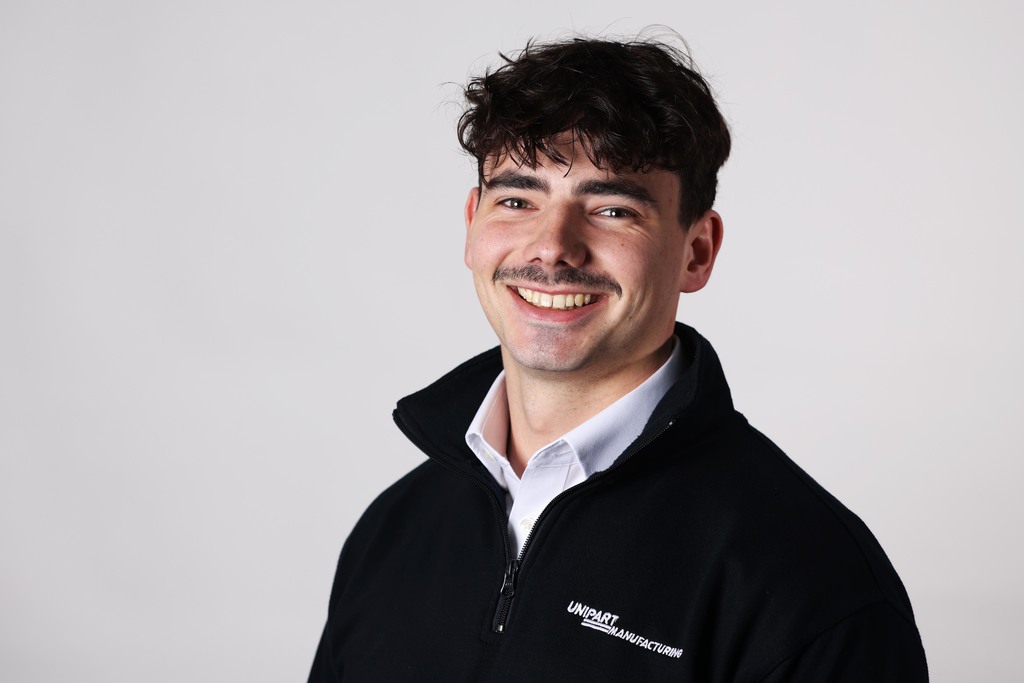
Production Line Development – Researching and defining the design, specifications, and implementation of a power electronics assembly line. This involves optimising workflows, ensuring quality control, and considering automation.
Drawing Change Management – Coordinating design modifications with external design authorities, ensuring updates are correctly documented and implemented. Product Overviews – Reviewing product specifications and features, mainly for internal understanding.
BoM (Bill of Materials) Analysis – Examining material/component lists for cost optimisation, sourcing efficiency, and manufacturability.
Broad Business Exposure – The opportunity to see different areas of this large organisation, giving you a comprehensive understanding of how the business operates.
Multi-Site Experience & External Trips – Regular travel between sites and external visits each month, providing hands-on learning and a dynamic work environment. Customer Engagement – Interacting with a variety of customers, I have developed my communication skills and commercial awareness.
Networking & Collaboration – Meeting a diverse range of colleagues and seeing how different departments interconnect.
Cross-Divisional Work – Already contributing to projects across multiple divisions, allowing you to gain valuable interdisciplinary experience.
Manufacturing Engineering Knowledge – Gaining a deeper understanding of production processes, efficiencies, and best practices.
No Fault Forward & Total Traceability – Learning how to design and implement systems that prevent defects from progressing down the production line and ensure full product traceability.
Teamwork in a Professional Setting – Enhancing your ability to collaborate effectively within a structured business environment.
Organization & Time Management – Developing the ability to stay organized, prioritize tasks, and manage workload efficiently in a fast-paced professional team.
One impactful project I worked on involved creating a process flow from a build manual and then specifying the required equipment. I translated the manual into a clear, structured process, making it easier for operators to follow and reducing errors. After that, I identified the necessary tools and machinery to ensure efficiency and consistency in production. This task helped streamline operations and gave me valuable insight into how process design and equipment selection directly impact manufacturing performance.
I’ve received strong support from mentors, managers, and colleagues throughout the business:
Technical Guidance: Experienced engineers have taught me about power electronics, helping me build a solid technical foundation.
Manufacturing Expertise: Manufacturing specialists have helped me analyse wiring harness drawings, improving my understanding of complex assemblies.
Project Management Mentorship: My project manager has guided me in improving my management and organizational skills.
Business Exposure: Colleagues from different areas have taken the time to show me other aspects of the business, giving me a broader perspective on how everything Interconnects.
Embrace networking and opportunities to get your name out there Be open minded, you may end up doing something completely different to what you expected, and loving it!
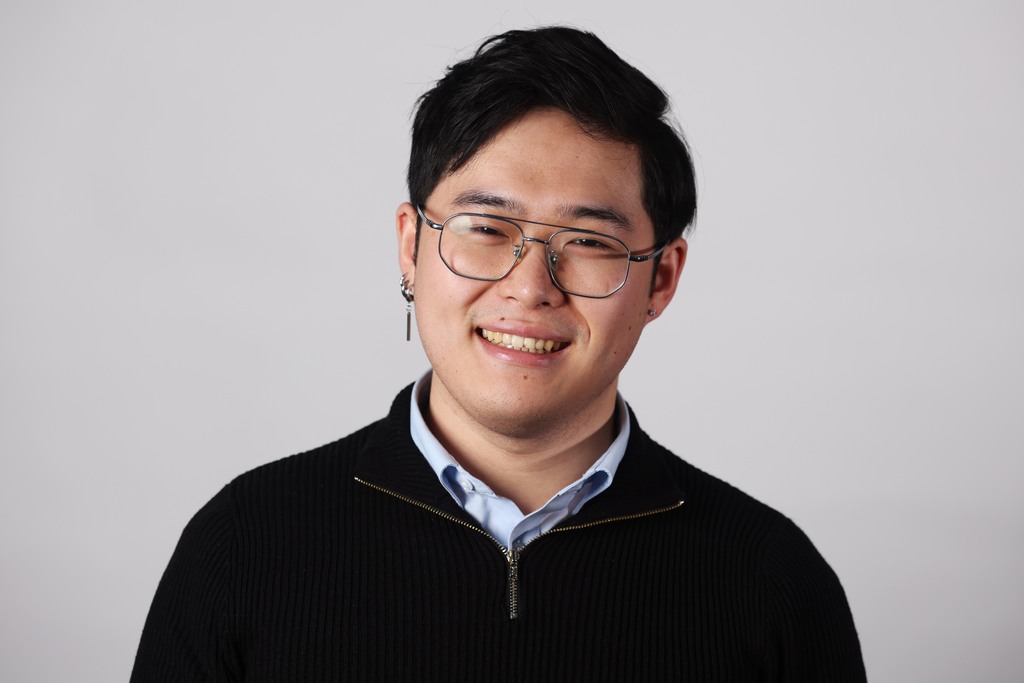
At Unipart Rail as a graduate mechanical engineer, my roles and responsibilities are quite varied due to the nature of the rail industry. Unipart rail being the largest parts supplier for the UK rail network, often support legacy fleets from the 70s and 80s, meaning I work with a lot of old school British engineering. Working under the engineering tech support team, I provide engineering support to other parts of the business, such as reviewing suppliers and investigating obsolete parts. I also started working with the research and innovation team who investigate new technologies that can improve the UK rail network and generate new business opportunities.
You will be placed into 3 different 6-month placements, rotating round different sites that relate to your discipline. During the 6 months you will be thrown into a new industry and be brought up to speed to the new environment. In rail, it took me 4 months to understand the relationship between all the various parties that operate in the British rail network and were business opportunities lie. You will have a supportive team around you that are happy to help and answer questions with an open door. Semi -regular training sessions with the other graduates in the cohort has become a great opportunity to develop new relationships from the shared experiences.
Being a fresh academic graduate, getting on site with customers and seeing how your engineering work can affect and support the real-world industry has been the most valuable part of the programme for me. As my time in university working on hypothetical and research-based projects, working on real projects with tangible results has been a game changer.
Unipart has its fingers in many different industries with a wide range of competencies. Working in the rail industry was something that never even crossed my mind before, now I have been thrust into a fascinating world of trains. My dream from a child was to work in the automotive industry and Unipart offers several avenues to that possibility through logistics, design and manufacturing. I also understand the importance of strong leadership and it is now something I aspire to become.
I have gained a lot of industry specific knowledge that I would have never had the opportunity to learn. As important as the industry knowledge and technical competencies are, I think I benefited the most from the soft skills I gained through Unipart training and development. Time management, communication skills and mental wellbeing are all critical skills I can take to any industry or business, and has been critical to my development.
The teams you will find and Unipart are all extremely knowledgeable while being friendly and approachable. There is an open-door policy and you can always find someone to help you on a task, even if it is your team manager. The growth mindset and striving for excellence culture can truly be felt throughout the business. KPI meetings and performance trackers are not there for criticism but to support you with advice or adjust workload if required. Overall it is a team of hardworking individuals who are there to support each other to achieve the best work possible.
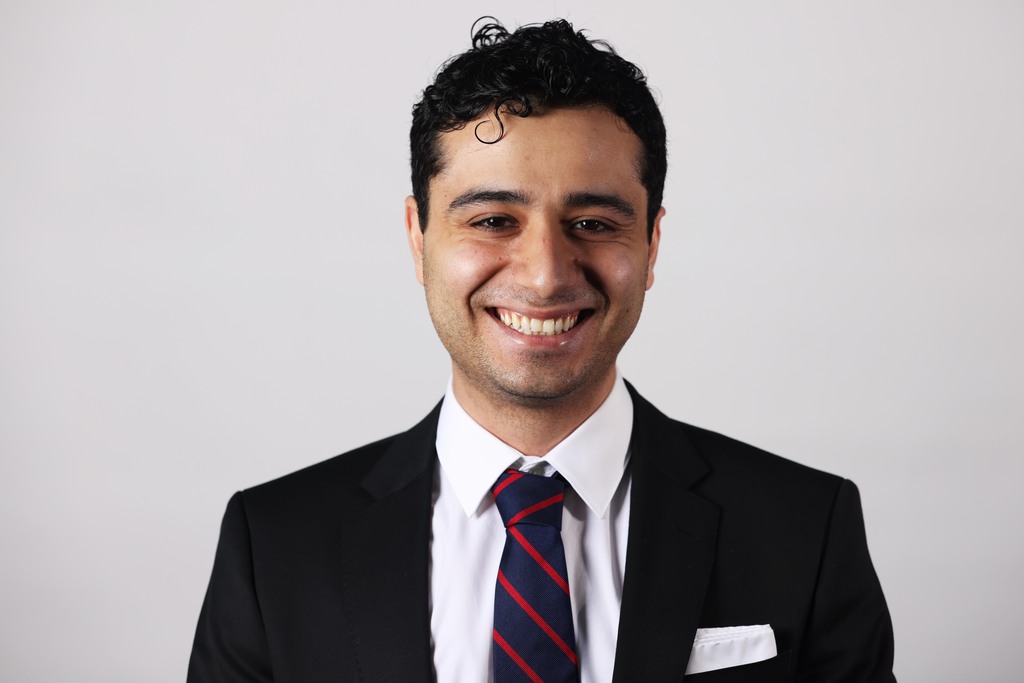
I mainly focus on operational excellence in a logistic environment. My main responsibilities include supporting process improvement initiatives, analysing operational data to identify efficiency gaps and collaborating with different teams to implement practical solutions. Additionally, I am ensuring that the current projects’ goals align with the Unipart Way Forward strategy as business objectives.
The programme is structured around rotation and diverse projects within different departments of logistics; Operation Excellence, solution Design, and Project Management. Each one of the placements has its unique objectives and it allows me to gain exposure to multiple facets of logistics and operation. Alongside the job experiences, there is structured training that introduces core methodologies and best practices. It guides me to understand the organisation’s culture and strategy and how Unipart Way could be applied in our day to day operation or workplace. While regular mentoring sessions provide guidance, feedback, and support. This multi-layered approach ensures a well-rounded learning experience. What has been the most valuable part of the programme so far? The most valuable aspect has been the hands-on experience and the opportunity to apply newly acquired skills directly to real-world challenges. Working on different projects, I’ve seen first-hand how operational excellence tools and techniques can make a measurable impact. Collaborating with experienced colleagues and receiving feedback in real time has accelerated my professional growth and solidified my understanding of best practices in logistics.
Before joining, I had broad interests in logistics but wasn’t entirely sure which path to pursue. Through the rotation and project work, I could gain more clarity on the areas that excite me the most.
The training sessions have been instrumental in building both my technical and soft skills. Practical workshops, combined with mentorship, have helped me develop confidence in presenting ideas to senior stakeholders and collaborating across teams. This blend of learning and real-life application has been key to my professional development.
The culture is deeply rooted in the continuous improvement and people within the company (no matter what their role is). The framework is guided by Unipart Way and it is at the heart of everything we are doing in Unipart Group. Additionally, the Unipart Way forward sets a clear strategic direction and encourages everyone to think ahead, innovate, and collaborate. Everyone is encouraged to share ideas, ask questions and learn from mistakes in an open environment. Within my team, there is a strong sense of support and inclusivity, colleagues willingly share knowledge, offer guidance and value each individual's contribution. This environment not only enables proactive problem-solving but also gives me the confidence to explore new ideas and stretch my capabilities as I grow in my career.
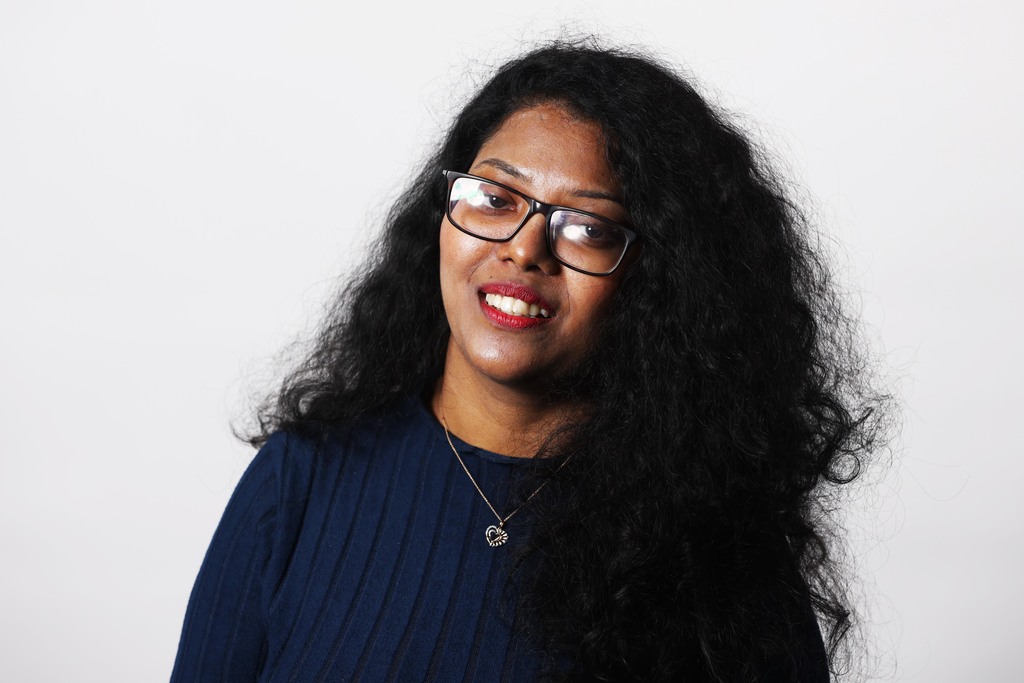
As a Graduate Data Scientist at Unipart, I specialize in predictive maintenance for the rail industry with Instrumental and provide energy insights through Eco Insight. My role involves data analysis, model training, and automation to enhance efficiency and sustainability. Additionally, I contribute to Thermoptics, applying machine vision for rail diagnostics.
The 18-month Graduate Programme at Unipart is designed to provide a well-rounded learning experience through real-time projects. Based at Instrumental, I engage in multiple live projects, working on real-world challenges that directly impact the business. The programme includes a mix of technical training, mentorship, and leadership development, ensuring a balance between hands-on learning and professional growth. Regular workshops with graduates from different sites, site tours, and quarterly reviews help expand industry knowledge and track progress. Strong team support and knowledge-sharing further enhance the learning experience, making it both dynamic and impactful.
Beyond technical skills, the programme is shaping me into a future leader. The structured leadership workshops bring together graduates across different sites, offering valuable exposure to various business operations and fostering collaboration and professional growth.
I’ve always thrived in dynamic environments that push me to learn and grow daily. This programme has given me the platform to work on diverse projects, solve real-world challenges, and be part of a team that values innovation and ideas. The early exposure to multiple domains has reinforced my confidence in pursuing my long-term goal of becoming a Lead Data Scientist. The mix of technical expertise, leadership development, and mentorship ensures I’m on the right path to achieving this ambition sooner than expected.
The training and development at Unipart have provided a well-rounded learning experience, combining technical expertise with leadership skills. The leadership workshops with graduates across different sites have enhanced my business understanding and teamwork abilities, while hands-on project work in predictive maintenance and energy insights has deepened my technical knowledge. Additionally, mentorship and regular progress reviews help refine my approach, ensuring continuous improvement and adaptability to new challenges. This structured development has accelerated my growth, equipping me with both the technical and leadership skills needed for a successful career.
Unipart fosters a supportive, inclusive, and collaborative culture where contributions are valued and encouraged. The company promotes flexibility and innovation, creating an environment where ideas can thrive. My team is exceptional—highly supportive, inclusive, and always willing to share knowledge. This positive culture makes Unipart an exciting place to learn, grow, and make meaningful contributions.
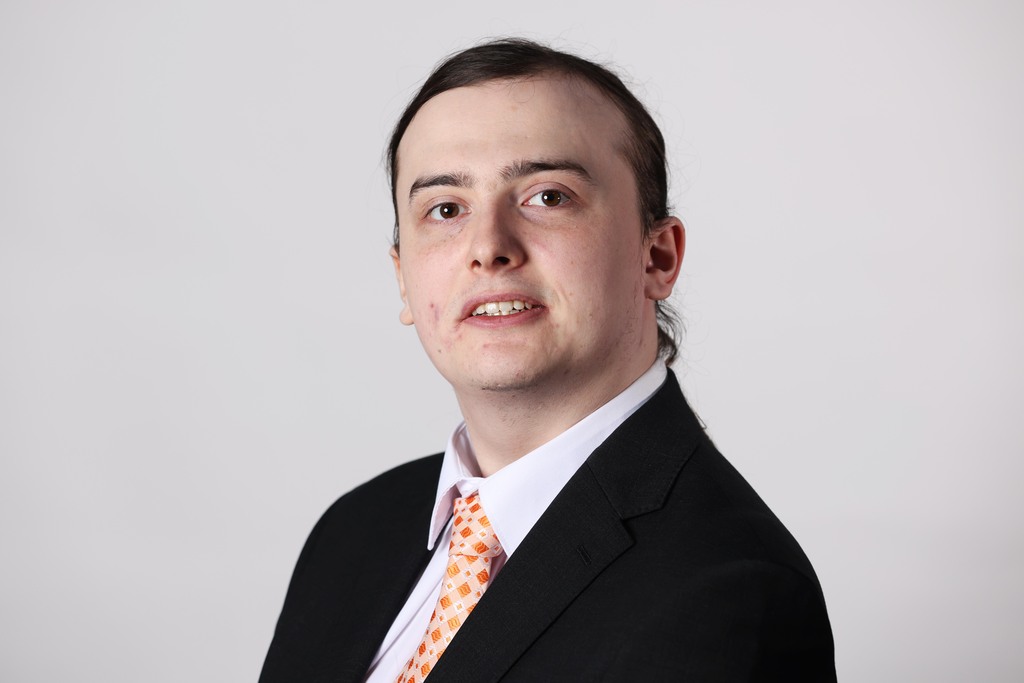
My current role is as a hardware engineer at Park Signalling Ltd (which is a subsidiary of Unipart Tech Group). My responsibilities largely revolve around diagnosing problems with existing signalling equipment. This is mainly existing products produced by the company which we are looking to improve, or legacy signalling equipment which we need to produce a suitable modernised equivalent for. I’ve also produced a few design documents to allow for easier manufacturing and change control as we iterate through designs.
The structure of the program consists of 3 six-month placements (each located at a different Unipart site). The initial three placements give us a chance to explore a diverse range of projects, products and skillsets, and to be exposed to various different systems of work. This gives the opportunity to examine our own skillsets, what we enjoy, and highlight areas for improvement. During each of these placements there are various training activities, which act as fun opportunities to interact and network with other graduates on the program, whilst also learning valuable soft skills that improve productivity and wellbeing in the workplace. They also further give the opportunity to explore the breadth of Unipart services and working practices by allowing us to familiarise ourselves with many different Unipart sites.
As at time of writing I am still on my first placement (starting my second in just under a month). Therefore, the most valuable aspect of the program so far has been the opportunity to take the theoretical knowledge I learned at university, and apply it to a range of practical problems. This has helped to identify many of the complexities introduced by real-world phenomena, which I had previously not been exposed to. Another valuable aspect has been the opportunity to work with experienced professionals on actual real-world projects, allowing me to see their problem-solving processes in real time as opposed to well-rehearsed ‘clean’ examples of what engineering is meant to be like. This has been an invaluable eye opener when it comes to practicing my interpersonal skills, working on projects in large teams and creating products that need to conform to external standards of safety and quality, all of which are skills I haven’t had the opportunity to develop through hobbyist and university projects.
In light of being exposed to the vast range of practical problems that arise when the smooth clean square peg of theory smashes haphazardly into the round hole of the real world, I’ve discovered the realm of production engineering. This is the process by which we take the designs for madcap machines of wonder designed by people such as myself six months ago, and turn them into something that can actually be built in the real world and mass-manufactured. Prior to starting this program, I was blissfully unaware that this process even existed, let alone was necessary, but I have found it to be deeply interesting and it’s something that I would love to explore in my future career, even if it is not necessarily the main focus of my duties.
A large portion of the training activities revolve around The Unipart Way. The Unipart Way is core to everything that is done at any Unipart site, from workplace culture all the way up to specific duties and actions that we perform day-to-day. Because it is part of the whole Unipart group on such a fundamental level, understanding it has helped me to engage with others collaboratively, and to help back up decisions I make in my role which gives me the confidence to apply my creativity without fear of being humiliated by others with more experience. As well as being useful within the Unipart group it’s also a good system for collaboration and effective problem solving which can be applied in other companies or potentially even other industries.
The culture of Park Signalling, is a deeply friendly and supportive one. I feel confident to talk with even the director-level staff without feeling daunted or talked-down-to. In particular the hardware team who I work with on a daily basis are incredibly friendly. Since we share a common set of interests and passions, working with them on projects feels more like creating something in the back garden with a set of friends than it does like being at work. Despite this, everyone takes what they do incredibly seriously and support each other to ensure that the products we produce are of the highest quality and are something we can be proud to send out into the world.
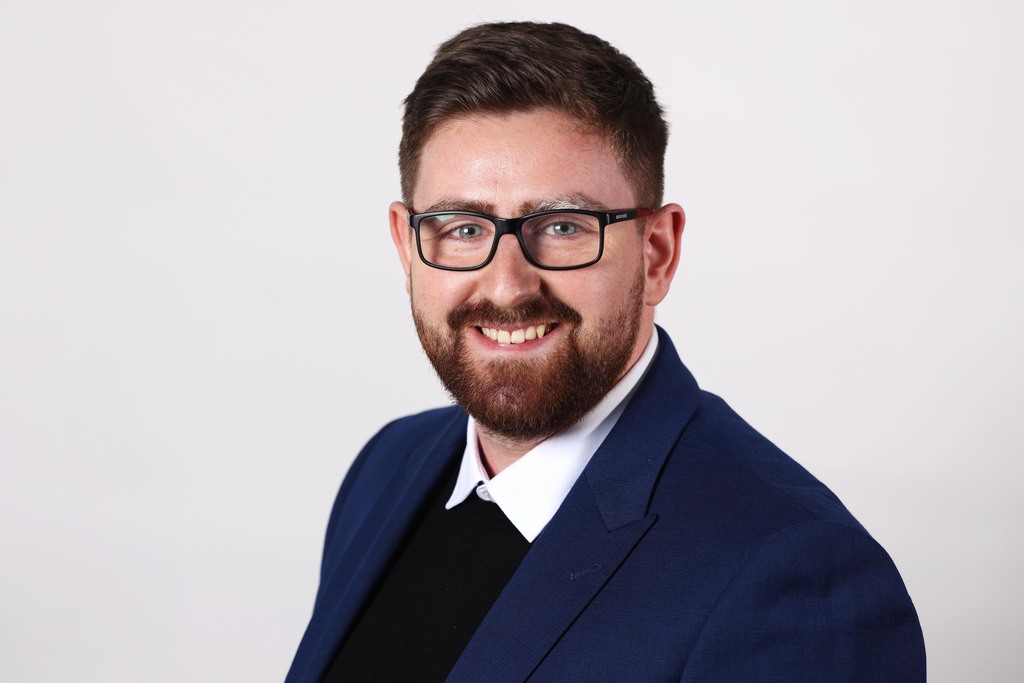
My current role is that of a design engineer at Metlase, however I would argue this role has evolved to an all-round company role as I have worked within the workshop occasionally, as well as had reference to receiving sales experience. Though, I would say the key responsibilities I have are as follows; To come up with innovative solutions to problems that arise within the manufacturing aspect/design problems found within meetings. To liaise with co-workers to understand problems and work alongside to fix them. Manufactured in the workshop, aspects include assembly of designs, adding designs to the Radan as well as operating the laser and equipment such as the Vac Hoist. I would strongly argue with this aspect of the role you get out the effort you put in, there isn't anything off limit that you can do and it pays to be curious with what is available. In addition, I did an internal project which exposed me to sales experience such as a document named the TCWB which essentially assigned hours and budget to an acquired specification. For design roles, I have had the ability to produce my own desk tidy which allowed for creative thinking and the possibility to bring your own passion to an everyday used item that can sit on your desk. Moreover, I have worked on a massive project participating within design issue fixes/concept creation. One of these creations was a stand to hold an inner rounding ring in which I had to gather the scope and build everything from just the idea of a problem. Key advice for this role is to be curious and not afraid to mess up, if you want to push yourself the tools are there and it will aid your development as well as remain exciting as there is a vast variety of products to work on as well as people to interact with for different problems.
I think one of the most refreshing aspects about the structure of this graduate scheme has been the level of organisation put into it, you can see they care about the programme which as a graduate is what you want. There is genuine interest from above ELT members, which makes you feel a part of the company especially when you meet your other graduates after a period apart and hear about everything they have got up to in their time and the impactful role they have had. I think the rotations are good, in the sense it allows you time to explore your skills and pushes you enough to gain new ones, in a fun supportive environment that engages with you. Also, it intrigues you for the future rotations to see how the work you are doing now will vary in the next destination as well as how you can use your newly acquired skills. But overall, I think it's nice how you feel a sense of family with the places you join, even though it's a short time people are so welcoming and supportive of you. In terms of projects, the exposure has been exciting given the nature of what you are working on. For instance, it's not every day you go from making a pen holder to working on a space project, or even working on a fixture for EV batteries. It's exciting and engages you to learn and internalise with your role. Training has been great, as a large element has been allowing us to explore our roles and learn as needed, while also allowing ourselves chances to fail and learn from that failure. Organised structures such as the competency matrix have really helped this also, as it's a tangible path to follow. Finally, I can't speak more highly of the support received, as people want to help you succeed especially when you are stuck. A friendly face is always there to help push you. In addition, the support from your line managers is perfect as they support and make sure you feel happy with your own progression.
For me personally, I think it's the support network. It's daunting going from Uni to a full-time career especially with applications you may not have experienced. But, the refreshing aspect about Unipart is the growth mindset and how your colleagues will support you to overcome this early worry. In addition, how your colleagues will put time aside to support you or even ask you for your opinion with problems. I would also say it has been valuable to see the path you have taken from the start, to see your own personal development is rewarding and to see your own growth to be doing things quicker and even having your peers provide that positive reinforcement for your own growth.
It encouraged my curiosity and pushed me to be even more curious about the future roles. It's driven me to want to be the best version of myself, as well as reinforcing my desire to learn everything available to me. It's also made me want to push for a higher role within the company, to learn the aspect of people management and understanding the personality types of your team. Likewise, this aspect has encouraged me to want to become a mental health first aider, as it inspires me seeing people overcome problems and hardship or even just to be the person who helps them overcome something would be rewarding. I have definitely realised I love a role where I can physically make something, yet I have found it even more refreshing to take the step back to troubleshoot and fix the problems with the design, or even working with my co-workers to fix a problem we have found. So overall it has inspired me to try and achieve the best position I can within Unipart, but has made me want to pursue what I enjoy most as that's where the best work comes from.
It has made me more curious, we had a talk with two members of our Executive Leadership Team who both told us about their roles and the important decisions they have to make. These both supported my development as it inspired me to want to learn about how an organisation manages risk, but also how you can understand the people around you to mitigate the chances of a risk occurring as well as, having the empathy to know your co-workers and how to help each other become their best versions. I also think the training has helped with confidence, from the different ice breakers to allow you to interact with each other, discussing interesting topics it helps to have that different sense of perspective and reality. Finally, I think the training has helped me understand just how massive Unipart is, and why the company has made over a billion, it makes you prouder to work for the company and makes you want to grow further.
Very pro-mistake in the sense that you learn from your mistakes, it's a very inclusive team that supports everyone and wants their people to become the best version of themselves. It's very obvious when visiting different sites that they want the best people working for them, radiated by the positive ethos of everyone around them. There is a clear conscience that you can ask anyone for help and they would provide it. If I was to describe Metlase, I would say it's like a family: everyone helps each other to achieve their best and they will also push each other and keep each other in line for the development that they need. Overall, I think the culture is good and definitely supportive of one another.